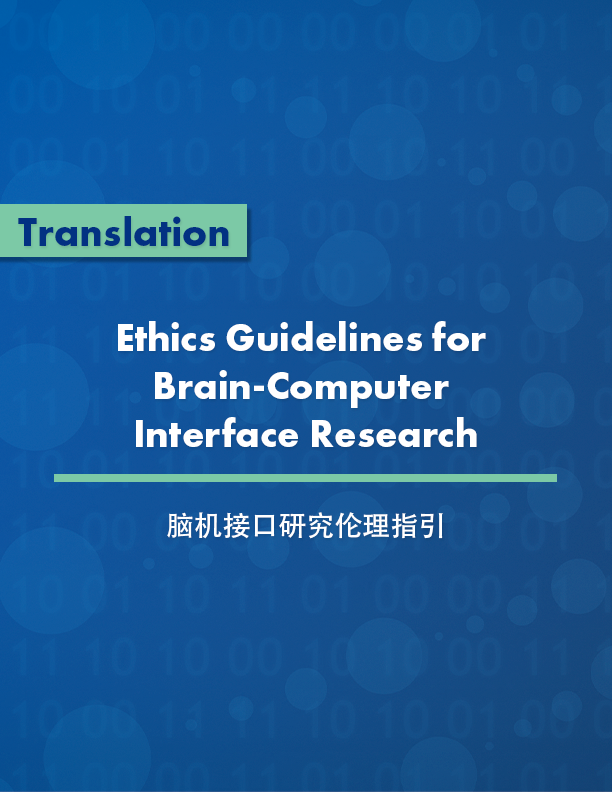The following guidelines, issued by a Chinese Communist Party commission, offer non-binding principles for ethical conduct in brain-computer interface research. The guidelines categorize BCI technology by its level of invasiveness, and distinguish therapeutic BCI designed to help people with neurological disabilities from augmentative BCI that enhances the abilities of healthy people. The guidelines urge “moderation” in the adoption of BCI technology, particularly in the case of augmentative BCI, which the guidelines warn could exacerbate social inequality if adopted without restraint.
An archived version of the Chinese source text is available online at: https://perma.cc/EDU4-55VH
Ethics Guidelines for Brain-Computer Interface Research
1. Purpose
To guide the compliant conduct of brain-computer interface (BCI) research, prevent ethical risks in the research and application of BCI technology, and promote the healthy and orderly development of this field, this document proposes ethical guidelines for BCI research.
2. Terminology
2.1 Brain-Computer Interface (BCI):
BCI is a new interdisciplinary technology that creates an information channel between the brain and an external device to achieve direct information exchange between the two. It involves collecting the brain’s neural activities from inside or outside the skull using recording devices, decoding these activities via machine learning models to extract information like subjective intentions, and using this information to output corresponding commands to control external devices, creating an interactive closed-loop system. BCI applications mainly include healthcare and medicine, communication, and lifestyle and entertainment, especially improving the movement, communication, and perception functions of patients with neurological paralysis diseases.
2.2 Noninvasive BCI:
Refers to BCI technologies that collect brain signals in a noninvasive manner from outside the scalp, including scalp electroencephalogram (EEG) and functional near-infrared [spectroscopy] signals.
2.3 Invasive BCI:
Refers to BCI technologies that involve neurosurgical procedures to implant electrodes or other signal recording devices into specific brain areas for precisely positioned and high-throughput neural signal collection.
2.4 Interventional BCI:
Refers to BCI technologies where electrodes or other signal recording devices are introduced into specific brain regions through interventional surgery for low-damage, high-precision, and high-throughput neural signal collection inside the brain.
To view the rest of this translation, download the pdf below.
